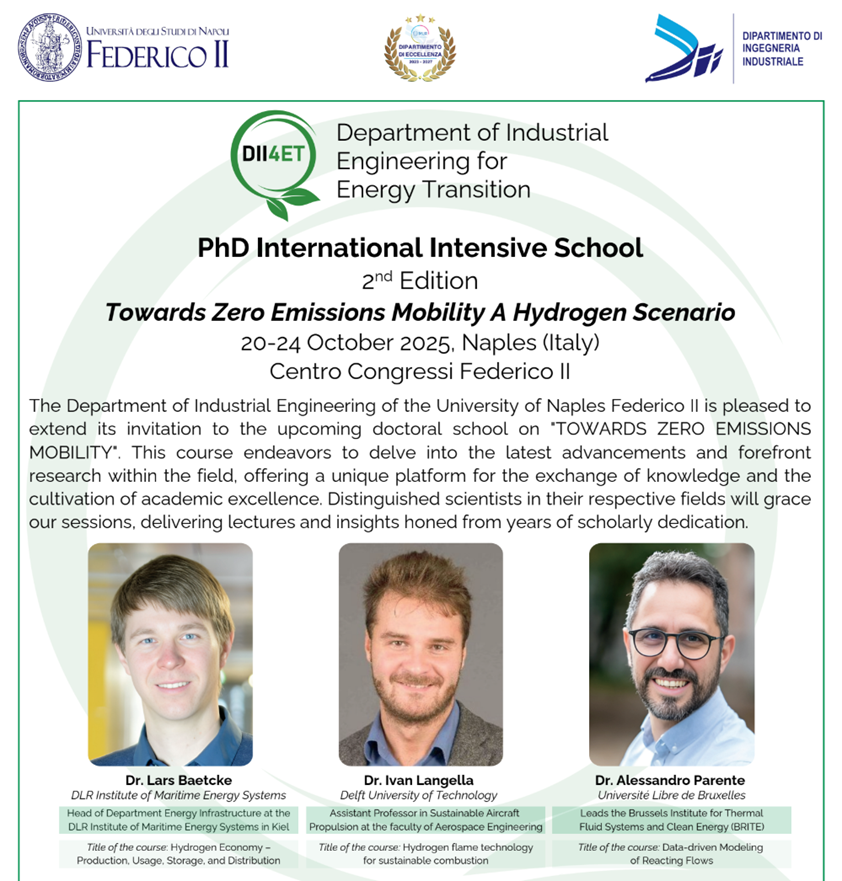
EERA is pleased to highlight an exceptional opportunity for emerging researchers. Our member, the University of Naples Federico II, has officially opened the call for applications for its 2nd PhD International Intensive School, "Towards Zero Emissions Mobility A Hydrogen Scenario," set to take place in Naples, Italy, from October 20-24, 2025.
Organised by the university's Department of Industrial Engineering, a designated "Department of Excellence," the school is designed to immerse PhD students in the latest advancements and forefront research in the hydrogen economy. It offers a unique platform for knowledge exchange and the cultivation of academic excellence, connecting the next generation of innovators with leading figures in the field.
A World-Class Program
The intensive course curriculum will be delivered by a panel of distinguished international experts, offering insights honed from years of dedicated research. The confirmed lectures include:
- Hydrogen Economy – Production, Usage, Storage, and Distribution
Dr. Lars Baetcke, Head of Department Energy Infrastructure, DLR Institute of Maritime Energy Systems.
- Hydrogen Flame Technology for Sustainable Combustion
Dr. Ivan Langella, Assistant Professor in Sustainable Aircraft Propulsion, Delft University of Technology.
- Data-driven Modeling of Reacting Flows
Dr. Alessandro Parente, Leader of the Brussels Institute for Thermal Fluid Systems and Clean Energy (BRITE), Université Libre de Bruxelles.
Bridging the gap between academic research and industrial application, the program will also feature an exclusive seminar, the "Bosch-Rexroth Hydrogen Scenario," presented by Eng. Matthias Danino, providing attendees with direct insights into industry perspectives and real-world applications.
How to Apply
The school is open to 50 PhD students from industrial engineering and related fields. The program has a strong international focus, with generous scholarships available.
- Target Audience: PhD students enrolled in Industrial Engineering and related programs.
- Scholarships: 20 scholarships of €1,200 (net) are available for international PhD students.
- Application Deadline: July 13, 2025.
This PhD school represents a unique opportunity for students to learn from world-class experts, engage with industry leaders, and build a network with peers from across Europe. EERA encourages all eligible PhD candidates within its network to consider applying.
Learn more information here.